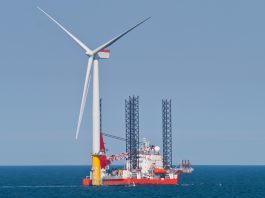A research team from Curtin University is pioneering decarbonisation in Western Australia through integrated mineral carbonation.
Bill Johnston, MLA, Mines and Petroleum Minister, announced on 29 June 2022 that the State Government’s roadmap will be pioneered by Michael Hitch, Head of School Professor at Curtin University’s WA School of Mines: Minerals, Energy and Chemical Engineering. Curtin University is honoured to be establishing the State Government’s roadmap to decarbonising Western Australia through integrated mineral carbonation, placing the state on a path to a more sustainable future.
Curtin Vice-Chancellor, Professor Harlene Hayne, said the University was proud to be at the epicentre of a project that would support the transition to a low-carbon economy: “Curtin University is excited to be a central part of bringing together industry, researchers and government stakeholders to find a solution to one of the world’s most pressing challenges.”
“Through research and innovation, we are seizing this incredible opportunity to harness the potential of mineral carbonation, which could eventually lead us to store more carbon dioxide emissions than we produce and help pave the way to a more sustainable, greener future.”
Integrated mineral carbonation
Mineral carbonation is a carbon dioxide (CO2) removal method and a natural rock weathering process, where CO2 binds to minerals in the Earth’s crust. This natural and passive process can permanently remove and store large volumes of CO2 from the atmosphere, transforming it from a gas into solid materials. This process is slow to occur in nature so the roadmap, led by Professor Michael Hitch at Curtin University, will identify how this natural process can be accelerated.
Professor Hitch, the roadmap development lead, said his team would develop methods to accelerate the natural process of mineral carbonation through rock weathering, which permanently removes carbon dioxide from the atmosphere.
“I am thrilled to be at the forefront of this collaborative project that aims to find technological solutions to storing large-scale CO2 emissions and thereby boosting sustainability,” explained Professor Hitch. “I look forward to working with all our partners as we join forces to build this mineral carbonation roadmap and ultimately transform the environmental impact and reduce the carbon footprint of our mining industry.”
Decarbonising western Australia: Transitioning to a low-carbon economy
Acquiring technological solutions for cost-effective, rapid, and large-scale CO2 sequestration creates the possibility for Western Australia to sequester more emissions than it produces, which will support the state’s transition to a resilient, low-carbon economy.
Nickel tailings are ideally suited for this purpose – BHP Nickel West is working with leading Australian and international experts to investigate methods of increasing the carbonation reaction to store CO2 into its mine tailings.
Thus, this will reduce or offset its operational greenhouse gas emissions and lower its carbon footprint; the roadmap is expected to be released in February 2023.
“Western Australia has both the natural endowment of minerals and a sophisticated mining sector to rapidly advance mineral carbonation technologies and create significant strategic economic benefit,” said Bill Johnston, Minister of Mines and Petroleum.
“Mineral carbonation has the potential to remove and permanently store carbon dioxide at the gigatonne scale to quickly transition Western Australia to a low carbon economy. Government industry research partnerships will be critical to increase the speed and scale of deployment to achieve this goal.”
“Our work to enhance the capacity of Nickel West’s mine tailings to absorb and store carbon is just one example of how BHP is pursuing its decarbonisation goals through innovation, technology, collaboration and empowering our people to develop their ideas,” concluded Jessica Farrell, Asset President at BHB Nickel West.
“Nickel is critical to global decarbonisation and is an increasingly sought-after product for the electric vehicle battery market. As well as supporting BHP’s own climate change goals, projects such as this help to enhance the sustainability credentials of our nickel products in our supply chains and create a commercial advantage in a competitive market.”









